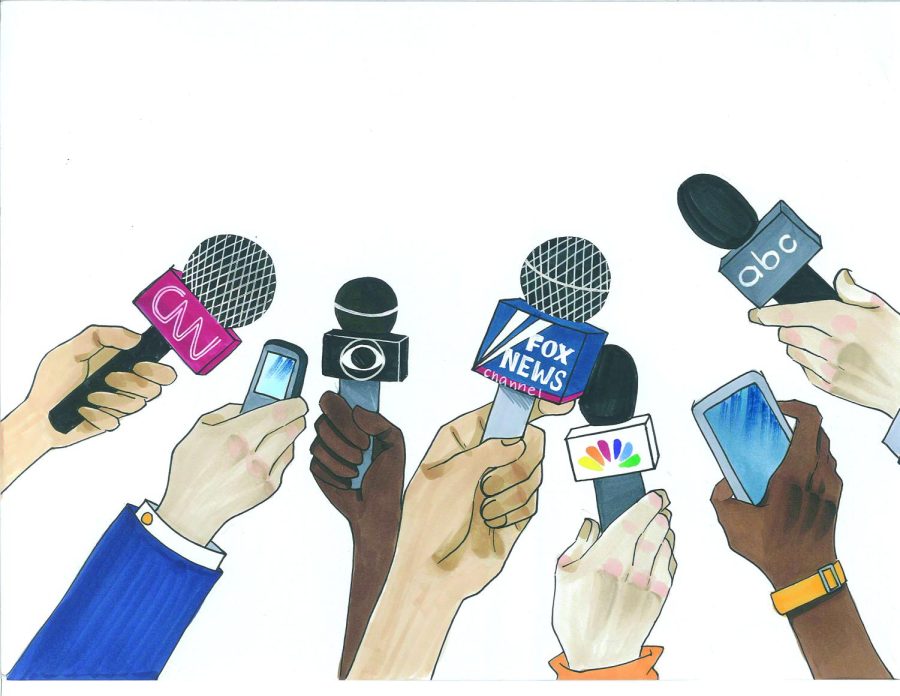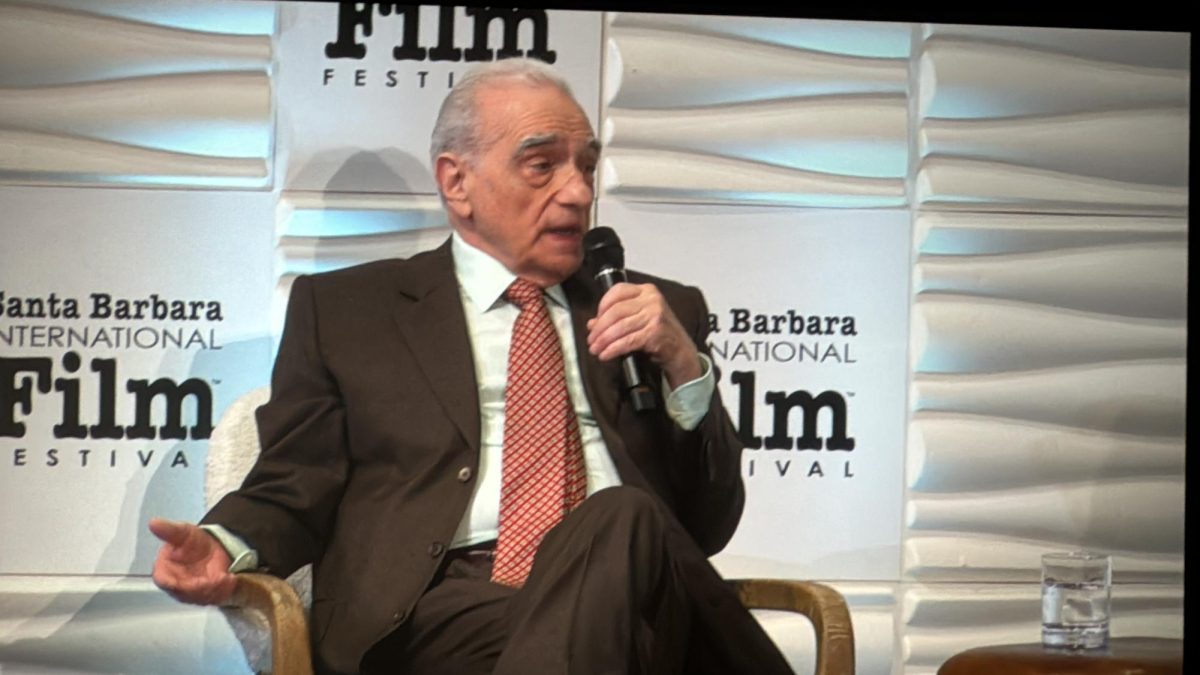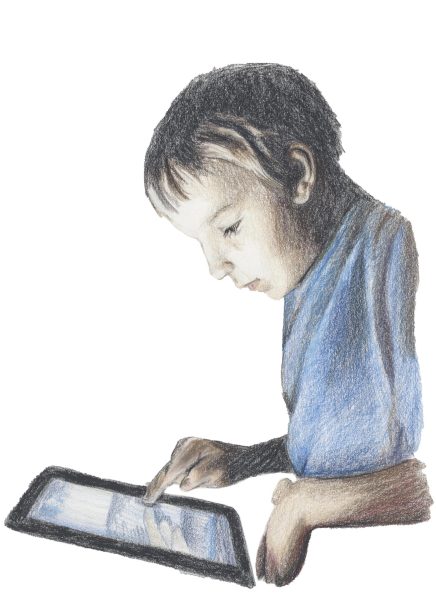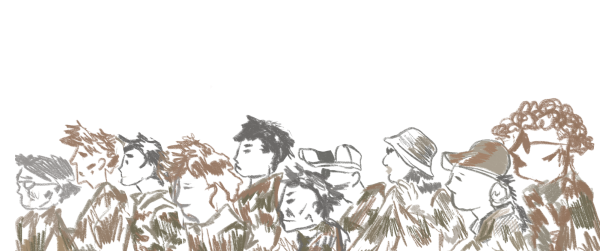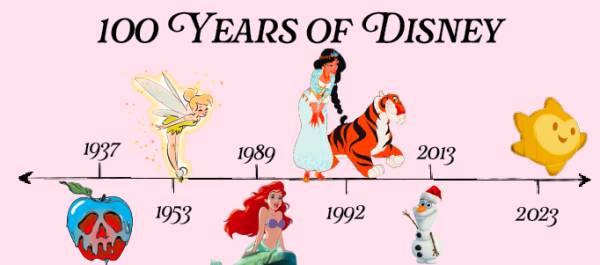The Fourth Estate?
Good journalism gets lost in the chaos of propaganda.
June 20, 2022
The Fourth Estate. The term refers to the press and news media both in the explicit capacity of advocacy and implicit ability to frame political and social issues. The media has powerful techniques to persuade and capture people’s attention and opinions. Throughout American history, there has been some form of news media that can alter the outcome of historical events. Following, the news is how people stay informed, up-to-date, and well-educated.
But as time and technology have progressed, the news media has begun to manipulate and take advantage of people’s biases and sway their choices motivated by profit. Under the guise of free speech, these media (news, TV, digital) players have used journalism to spread false news, influence citizens, and attempt to influence election results.
American journalism dates back to 1776—the birth of the United States. From local stories to the top ranking positions, journalists are there to cover the good, the bad, and even the honest. Journalism is often considered so significant that it acts as the fourth branch of government, hence its name “The Fourth Estate.”
In many ways, it serves as a balance of power and check of position in a democracy. It keeps elected politicians and highly ranked personas in check and holds them accountable for their actions while in office, while also preventing them from obtaining too much power. The press is free to denounce and condemn anyone in a governmental role.
Journalism and the media industry have continued to evolve and strengthen quickly. The advancements in technology, such as television and the internet, have allowed information to be released to the public at unprecedented rates. Due to these advancements, journalism now has the ability to persuade billions of people and, in some circumstances, harm the greater good.
Take the 2016 Presidential election, for example. Voting patterns were largely preordained in this hyperpolarized era, so people must examine the media to determine its role in the 2016 election between Donald J. Trump (R) and Hillary Clinton (D). Journalists play an indispensable role in our political system. They are responsible for providing us with the information we need to govern ourselves in a democratic society. But in 2016, they let us down.
The televised Republican debates helped tip the nomination toward Trump by placing him front and center solely based on polls. With Trump’s constant media coverage and policies, there was only one candidate that had a shot at winning the presidential election. And that was soon-to-be-President Trump.
After the media interference with the 2016 election, many citizens were critical of the news they consumed. It became blatantly clear that news has the power to sway an entire nation. The post-election world was on high alert, for citizens of the United States finally realized the power and capabilities of the media.
While journalism plays various roles in society, perhaps it is most important how it serves as a bridge of information from the government to the ordinary citizen. By simply informing the public about what is happening in the world and how they can relate to it, there can be exponential shifts in how our public combats essential issues.
The media serves a variety of essential roles in a democratic society. Their most fundamental purpose is to inform and educate the public, providing citizens with the information needed to make critical decisions about leadership and rule. The media also acts as watchdogs examining and dissecting public action and government activity. They set the agenda for general discussion of issues and give a platform for political expression and identity. By facilitating community building, people can find common causes, identify civic groups, and work toward solutions to societal problems.
So, looking past the manipulation of the news and journalism, how and what can citizens trust these days? Without the confidence of knowing if the news one consumes is truthful, it can be challenging to convince yourself that any news is nonpartisan and honest. To find good journalism, people need to become critical thinkers and consumers against fake information.
Critical consumers take command of the environmental, social, and political effects of their choices. The critical consumer sympathizes with specific social movement goals and contributes to them by modifying their consumption behavior. Critical consumers actively search for ways to adjust their mindset and action to pursue a better world environment.
The Fourth Estate and its mission is pure in conception, but its intentions can get lost in the whirlwind of “dirty politics” and propaganda. Just like the name of our magazine, The Fourth Estate describes journalists and acknowledges their influence and status among the most significant powers of a nation. Journalists can and are changing the world.



